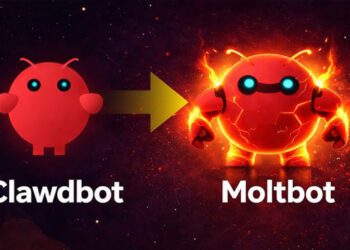The artificial intelligence landscape witnessed a dramatic turn of events on Friday as OpenAI’s highly anticipated $3 billion acquisition of AI coding startup Windsurf fell apart. In a stunning reversal, Google DeepMind emerged as the winner, securing key talent and technology from the coveted startup through a strategic licensing deal.

The Deal That Never Was
OpenAI’s ambitious plan to acquire Windsurf for $3 billion represented one of the largest potential deals in the AI coding space. The ChatGPT maker had entered into an exclusivity agreement with Windsurf back in May, giving the company time to finalize what would have been a game-changing acquisition.
However, the exclusivity period expired on Friday, leaving Windsurf free to explore other options. The startup didn’t waste any time. Within hours of the exclusivity window closing, Google announced it had struck a deal to bring Windsurf’s top talent to its DeepMind division.
The collapse of the OpenAI deal marks a significant setback for the company, which has been aggressively pursuing acquisitions to strengthen its position in the competitive AI market. This failure comes at a time when OpenAI faces increasing pressure from rivals and has experienced notable talent departures to competitors like Meta.
Google’s Strategic Victory
Google’s approach proved more appealing to Windsurf’s leadership. Rather than a full acquisition, Google structured what’s known as a “reverse acqui-hire” deal. This arrangement allows Google to secure the startup’s most valuable assets its people and technology without the regulatory scrutiny that typically accompanies large acquisitions.
Under the agreement, Windsurf CEO Varun Mohan, co-founder Douglas Chen, and several key researchers from the startup’s R&D team will join Google DeepMind. These new hires will focus specifically on “agentic coding” efforts and work primarily on Google’s Gemini AI model.
“Gemini is one of the best models available and we’ve been investing in its advanced capabilities for developers,” Chris Pappas, a Google spokesperson, told The Verge. “We’re excited to welcome some top AI coding talent from Windsurf’s team to Google DeepMind to advance our work in agentic coding.”
Bloomberg reported that Google paid approximately $2.4 billion for the licensing deal and to secure the top talent. While this represents a significant investment, it’s still less than OpenAI’s proposed $3 billion acquisition price.
The Technology Behind the Deal
Google will receive a non-exclusive license to certain Windsurf technologies, meaning the startup retains the right to license its innovations to other companies. This arrangement provides Google with immediate access to cutting-edge AI coding tools while allowing Windsurf to maintain its independence and continue serving its existing customer base.
The licensing aspect of the deal is particularly strategic for Google. It gives the tech giant access to Windsurf’s advanced AI coding capabilities without the complexities of a full merger. This technology will likely be integrated into Google’s existing developer tools and could enhance the capabilities of its Gemini AI model.
Importantly, Google will not have any control over Windsurf as a company, nor will it hold an equity stake. This structure allows both companies to benefit while maintaining their operational independence.
Windsurf’s Continued Operations

Despite losing its top leadership, Windsurf will continue operating as an independent company. Jeff Wang, the startup’s head of business, has stepped up as interim CEO, while Graham Moreno, VP of global sales, has been promoted to president.
The majority of Windsurf’s 250-person workforce will remain with the company and continue developing AI coding tools for enterprise customers. This continuity is crucial for maintaining relationships with existing clients and ensuring the startup’s ongoing viability.
“We are excited to be joining Google DeepMind along with some of the Windsurf team,” Mohan and Chen said in a joint statement. “We are proud of what Windsurf has built over the last four years and are excited to see it move forward with their world class team and kick-start the next phase.”
The Broader AI Coding Market
The battle for Windsurf highlights the intense competition in the AI coding sector. These tools, which use generative AI to assist programmers in writing code, have become one of the hottest categories in technology.
Microsoft’s GitHub Copilot, built on OpenAI’s technology, has already gained widespread adoption among developers. Meanwhile, competitors like Cursor have attracted significant venture capital investment, with the startup recently raising $900 million at a $9 billion valuation from investors including Thrive Capital, Accel, and Andreessen Horowitz.
Windsurf’s rapid growth made it an attractive target. The company’s annual recurring revenue (ARR) reached approximately $100 million in April, up from about $40 million just months earlier. This explosive growth trajectory caught the attention of major tech companies looking to strengthen their AI coding capabilities.
OpenAI’s Acquisition Strategy Setbacks
The failed Windsurf deal isn’t OpenAI’s first disappointment in the AI coding space. Prior to pursuing Windsurf, the company had approached Anysphere about acquiring Cursor. However, those discussions fell through as the startup wasn’t interested in being bought, even by OpenAI.
These setbacks highlight the challenges OpenAI faces in expanding through acquisitions. The company’s high profile and regulatory scrutiny make some startups hesitant to engage in acquisition talks, preferring to maintain their independence or explore alternative arrangements like Google’s licensing approach.
Microsoft Complications
The Windsurf acquisition attempt reportedly created tension in OpenAI’s relationship with Microsoft, its largest backer and strategic partner. Microsoft currently has access to all of OpenAI’s intellectual property through their partnership agreement.
However, OpenAI was reluctant to extend this access to include Windsurf’s AI coding technology. This reluctance created complications in the deal structure and may have contributed to the ultimate failure of the acquisition.
The situation underscores the complex dynamics between OpenAI and Microsoft, particularly as both companies compete in overlapping areas of the AI market while maintaining their strategic partnership.
Industry Implications
Google’s successful recruitment of Windsurf’s leadership represents the latest example of Big Tech companies using reverse acqui-hires to strengthen their AI capabilities. Similar deals have seen Google hire back Character.AI CEO Noam Shazeer and Microsoft recruit Mustafa Suleyman from Inflection AI.
These arrangements allow large tech companies to acquire valuable talent and technology while avoiding the regulatory scrutiny that typically accompanies major acquisitions. As AI competition intensifies, this approach may become increasingly common.
For the broader AI coding market, Google’s move signals the tech giant’s serious commitment to competing with Microsoft’s GitHub Copilot and other established players. The addition of Windsurf’s expertise could significantly enhance Google’s developer tools and AI coding capabilities.
Future Outlook
The collapse of the OpenAI-Windsurf deal and Google’s subsequent victory highlight the fluid nature of the AI market. Companies must move quickly to secure talent and technology, and traditional acquisition approaches may not always be the most effective strategy.
For Windsurf, the challenge now lies in maintaining momentum without its founding leadership. Other AI startups that have seen their leaders hired away have struggled to sustain their previous growth rates. Scale AI lost customers following its deal with Meta, while Inflection had to pivot entirely after its arrangement with Microsoft.
The success of Windsurf’s transition will depend largely on the capabilities of its remaining team and the strength of its technology platform. With most of its workforce staying and continued access to its core technology, the company has the foundation needed to continue serving its enterprise customers.
Conclusion

The dramatic reversal in the Windsurf acquisition saga demonstrates the intense competition for AI talent and technology. While OpenAI’s $3 billion offer initially seemed like a done deal, Google’s more flexible approach ultimately proved more attractive to the startup’s leadership.
This outcome reflects broader trends in the AI industry, where traditional acquisition models are giving way to more creative arrangements that benefit all parties while avoiding regulatory complications. As the AI coding market continues to evolve, expect to see more innovative deal structures as companies compete for the best talent and technology.
The implications extend beyond just these three companies. The deal reshapes the competitive landscape in AI coding tools and signals Google’s renewed commitment to challenging Microsoft’s dominance in developer tools. For the industry as a whole, it demonstrates that in the fast-moving world of AI, flexibility and speed often matter more than the size of the offer.
Sources
- The Verge – OpenAI’s Windsurf deal is off and Windsurf’s CEO is going to Google
- Fortune – OpenAI’s $3 billion deal with AI coding startup Windsurf collapses, as Google swoops in for licensing deal
- TechCrunch – Windsurf’s CEO goes to Google; OpenAI’s acquisition falls apart
- Bloomberg – OpenAI’s $3 Billion Deal to Buy AI Startup Windsurf Falls Apart








